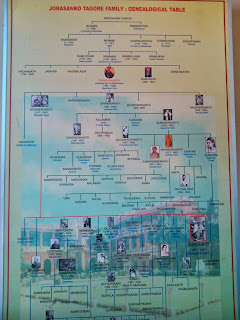150th Birth Anniversary Of Sir Jadunath Sarkar
Jadunath Sarkar was an eminent Indian historian especially of Mughal Dynasty. He wrote several books on Aurangzeb. He was born on 10th December, 1870 in Natore, Bengal to Rajkumar Sarkar, the local Zamindar on 10 December 1870.[2] In 1891, he graduated in English from Presidency College, Calcutta.[2] In 1892, he topped the Master of Arts examination, in English at Calcutta University and in 1897, he received the Premchand-Roychand Scholarship.[2]
In 1893, he was inducted as a faculty of English literature at Ripon College, Calcutta (later renamed Surendranath College).In 1898, he was appointed at Presidency College, Calcutta after getting selected in the Provincial Education Services.[2] In between, from 1917 to 1919, he taught Modern Indian History in Benaras Hindu University and from 1919–1923, both English and History, at Ravenshaw College, Cuttack. In 1923, he became an honorary member of the Royal Asiatic Society of London. In August 1926, he was appointed as the Vice Chancellor of Calcutta University. In 1928, he joined as Sir W. Meyer Lecturer in Madras University.
Historiography
Sarkar's works faded out of public memory, with the increasing advent of Marxist and postcolonial schools of historiography.
Academically, Jos J. L. Gommans compares Sarkar's work with those of the Aligarh historians, noting that while the historians from the Aligarh worked mainly on the mansabdari system and gunpowder technology in the Mughal Empire, Sarkar concentrated on military tactics and sieges.
He has been called the "greatest Indian historian of his time" and one of the greatest in the world, whose erudite works "have established a tradition of honest and scholarly historiography" by E. Sreedharan. He has also been compared with Theodor Mommsen and Leopold von Ranke
Honors
Sarkar was honored by Britain with a Companion of the Order of the Indian Empire CIE and knighted in the 1929 Birthday Honours list.He was invested with his knighthood at Simla by the acting Viceroy, Lord Goschen, on 22 August 1929.
Legacy
The Centre for Studies in Social Sciences, Calcutta, an autonomous research center, has been established in his house, which was donated to the state government by Sarkar's wife. CSSC also houses the Jadunath Bhavan Museum and Resource Centre, a museum-cum-archive of primary sources.
List of works
Published works by Sarkar include:
- Economics of British India (1900)
- The India of Aurangzib (1901)
- Anecdotes of Aurangzib (1912)
- History of Aurangzib (in 5 volumes), (1912–24)
- Chaitanya's pilgrimages and teachings, from his contemporary Bengali biography, the Chaitanya-charit-amrita: Madhya-lila (translation from the Bengali original by Krishnadasa Kaviraja, 1913)
- Shivaji and his Times (1919)
- Studies in Mughal India (1919)
- Mughal Administration (1920)
- Nadir Shah in India (1922)
- Later Mughals by William Irvine (in 2 volumes), (edited by Jadunath Sarkar, 1922)
- India through the ages (1928)
- A Short History of Aurangzib (1930)
- The Fall of the Mughal Empire (in 4 volumes), (1932–38)
- Studies in Aurangzib's reign (1933)
- The House of Shivaji (1940)
- The History of Bengal (in 2 volumes), (1943–1948)
- Maāsir-i-ʻĀlamgiri: a history of the emperor Aurangzib-ʻl̀amgir (translation from the Persian original by Muḥammad Sāqī Mustaʻidd Khān, 1947)
- Military History of India (1960)
- A History of Jaipur, c. 1503-1938 (1984)
- A History Of Dasnami Naga Sanyasis
- Source: Wikipedia




Comments